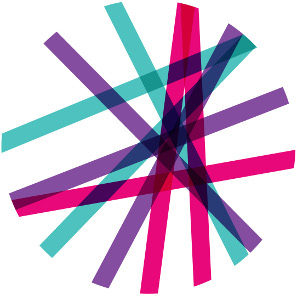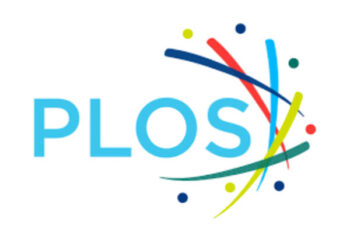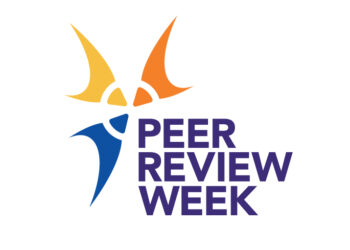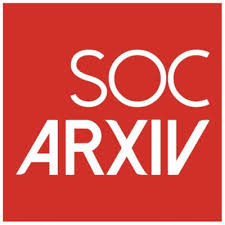 Kristen Ratan, known to many in the scholarly communications world, has been embarking on a new adventure of late. Together with Adam Hyde, she has launched the Collaborative Knowledge Foundation (CKF), a nonprofit organization whose mission is to evolve how scholarship is created, produced and reported. I recently had the chance to talk to Kristen about the Foundation – what it is, what problem(s) it aims to address, how it is funded, and more.
Kristen Ratan, known to many in the scholarly communications world, has been embarking on a new adventure of late. Together with Adam Hyde, she has launched the Collaborative Knowledge Foundation (CKF), a nonprofit organization whose mission is to evolve how scholarship is created, produced and reported. I recently had the chance to talk to Kristen about the Foundation – what it is, what problem(s) it aims to address, how it is funded, and more.
Please describe the Collaborative Knowledge Foundation and your role there
CKF, or Coko for friends, is a nonprofit open source technology organization offering alternatives to the ways that we currently produce and share knowledge. We’ve kept that directive deliberately broad so that we can focus on many different types of knowledge and processes. We’re starting with research communication because it is such a critical form of knowledge that is currently broken in ways that are damaging to society.
That’s a troubling statement – it sounds like you’re saying that publishing is damaging society. What do you mean?
I am neither an attacker of nor an apologist for scholarly publishing, as the situation doesn’t call for black and white thinking. I’m pointing out that, at the moment, it’s a slow, costly and static way to communicate research that is vital to society. It’s not serving its various constituencies well and has come under criticism from all sides. We’re launching the effort to transform scholarly publishing from the bottom up and are looking for partners who want to jump on board with us. There are many publishers, societies and presses who readily admit that the current state needs radical change and are eager to actively create new solutions. We want to work with these people to rebuild from the ground up.
What kind of transformation are you talking about and how will open source technologies accomplish this?
Imagine if, as research was moving from analyses to the point of being shared, it was in a web-ready state, with all of the files and artifacts that went into the work being well-structured research objects with clear metadata linked together. Imagine also, that as this constellation of objects moved forward in time, it evolved and became linked to new objects as they emerged, without losing the integrity of the original work. In other words, we can have our versions of records, identifiers, archiving and the other formalities of publishing, while accommodating the fluid state of scholarship in the digital era. We can offer researchers ways to collaborate and build on each others’ work without throwing out more traditional forms of assessing, editing and improving the work.
We believe that to get to this state we need our infrastructure to be:
- Open and shared: open source means that the community owns the technology and accompanying standards, protocols and tools. The community of users can steer the roadmap and ensure that it remains cutting edge over time. It can control the costs and ensure the flexibility needed to prevent being locked-in.
- Collaboratively designed: rather than building a big chunk of technology and then telling everyone why they should love it, we will be working side-by-side with our user community to design the ideal tool chain. I have yet to see a platform designed in isolation that met the needs of the broader community.
- Modular in architecture: most platforms are monolithic, “big box” platforms, making it hard to enhance or replace parts. We’re building interoperable components, each with a discrete function, that can be assembled together to meet many different platform needs. This is a toolkit to build platforms rather than the next platform to rule them all. And others can adapt or build their own components, even proprietary ones.
What do you see as the role of the private sector in achieving the kind of infrastructure you envisage?
Ideally there will be a blend of open source projects and private enterprise. The goal of open infrastructure is to lower the cost and barrier for innovation. With a shared foundation upon which to build, companies can focus on adding their own “special sauce” rather than reinventing and maintaining the same core functions. An analogy I’ve used is airport and security infrastructure that the airlines all share but don’t have to build themselves. They compete effectively while using the same facilities, utilities, and services.
How did you come up with the idea for CKF — did you have an ‘aha’ moment, or was it more of an evolution?
It was more of a series of “aha” moments. Together, Adam Hyde and I have built or worked on nine different content platforms over the years and we’ve certainly learned what not to build.
During our early whiteboarding sessions, we realized that we need to merge the best of the web with only the most useful of the practices and standards of scholarly publishing. We need the best of both worlds and to get rid of the rest. This was the moment when we decided to forge that path.
We’re building a community of those who want to figure that out with us.
What have been your biggest successes so far?
We’re thrilled with our initial progress building the PubSweet back end and first few components. There are two main frameworks:
- PubSweet Publishing Framework: enabling knowledge management, creation, processing and dissemination. The framework includes a robust back end and components for authoring and collaboration, editing and production, flexible and configurable workflow management and user dashboards and administration interfaces. The use cases include journal and book publishing.
- INK framework: ingesting, converting and syndicating content and data from one format to another, tags with identifiers and semantics, and normalizes metadata. Use cases include converting Word and other proprietary formats into well structured HTML5, XML, ePub and outputting to syndicated services, web and in PDF.
All of the code is on GitHub. A list of links can be found on the Resources page of our website.
But we’re even more excited about our approach. We had our first community meeting in December 2015, right after we launched. We brought together early partners and those interested in using the technology we were planning to build. It was fantastic to imagine a new future with this amazing group of people.
This is what we are working towards and it is through community engagement like this that we will achieve it.
And what about your challenges?
We’re introducing a new way of thinking about the industry, moving from proprietary and locked technology and service silos to open and shared infrastructure. There are entrenched ideas and interests that will resist this type of transformative change.
What’s your business model and when do you hope to become self-sustaining?
We anticipate three sources of income – grants, earned income from development work, and, over-time, contributions from those using the open source technologies. As the latter two grow, we will need much less support from grants. We hope to be self-sustaining within three to five years.
In the meantime, you’ve received support from the Shuttleworth Foundation and the Gordon and Betty Moore Foundation — is that for specific projects or general startup funding?
We’re very grateful to both the Shuttleworth and Moore Foundations for their support. The Shuttleworth support is in the form of a Fellowship for Adam Hyde and has so far covered some critical development work and community-building activities. The Moore grant is general organizational funding over the first two years.
You’re also partnering with several organizations — PKP, , Open Tech Strategies, Book Sprints, and LOCKSS. Why those organizations and what are you working on with them?
We’re working with organizations that have similar values and believe that knowledge should be born digital, accessible, archivable and compliant with open standards. These partners were those that we initially identified and we look forward to adding more.
What do you hope CKF will achieve in the next 3-5 years?
We want to seed a new ecosystem of open source technologies that offers a level playing field for innovation in research communication. We hope to see many other open source tool-builders contribute interoperable and reusable components to this broader ecosystem.
What three words sum up CFK?
Fair, rapid and complete. We believe that knowledge production and output should be fairly accessible to everyone. We want to see knowledge shared as rapidly as possible. And the output to be communicated completely, with all relevant datasets, protocols and people clearly identified and networked.
Discussion
5 Thoughts on "Can You Coko? An Interview with Kristen Ratan of the Collaborative Knowledge Foundation"
This approach to scholarly communication needs to part of curricula in grad school. If grad schools produced scholars who used a CKF platform, eventually the extortionist subscription practices could end. Their monopoly would end. For this reason I believe universities and research granters would want to contribute to CKF.
Hi Sherio, thanks for the insight. There are certainly a lot of ways in which open infrastructure could fuel alternative methods of sharing data and content. We certainly hope that people take the tools and experiment with new models.
One can list a number of reasons to publish. 3 possible reasons: a) claim a position b) to share or dialog and c) to collect credits towards grants/promotion/tenure. In a world fighting for attention or one’s limited time, there are now smart engines that can extract critical information, summarize and even analyze/report. Thus, one can make decisions ranging from ignore to dig further. This means that option a for researchers and c can have relevant materials quickly extracted and action taken. Option b while subject to such extraction requires commitment of the limiting quantity, time, which is where Coko can play unencumbered by the persiflage surrounding the standard publishing models. And Coko may provide a more efficient platform for critical dialog. The key is whether those concerned with option c, the ritual certification for funding and similar needs can figure out how to map this requirement onto a Coko platform.


